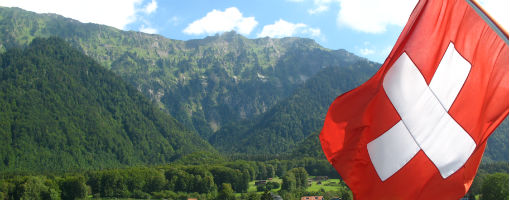Sweden’s KPA Pension has reported a loss of 10.3 per cent in the second quarter of 2022.
However, premium income for KPA Tjänstepensionsförsäkring AB increased by 4 per cent over the quarter to SEK 13,977m and the solvency ratio increased to 229.
In a market characterised by sharply falling asset prices, KPA said it has limited the effect of the decline for pension savers.
Commenting, KPA Pension CEO, Camilla Larsson, said: “In a time characterised by uncertainty and anxiety, our work to deliver a safe and sustainable pension to employees in municipalities and regions feels particularly important. In this challenging market, KPA reports a total return of minus 10.3 per cent when the Stockholm Stock Exchange (OMXSPI) has fallen 30 per cent and global indexes (MSCI World) have fallen 20 per cent.
“The first half of the year has been characterised by sharply falling asset prices in the world's fixed income and equity markets as a result of Russia's invasion of Ukraine, tightening monetary policy by the world's central banks to meet rapidly increasing inflation and lingering effects of the pandemic that continues to weigh on the global economy.
KPA Pension has strong financial ratios. The premiums continue to increase and the solvency ratio reaches 229 per cent.”
Turning to KPA Pension’s other activities in the second quarter, KPA Pension has invested approximately SEK 440m in a bond that will work to reduce food shortages in the world and it has increased its stake in battery company Northvolt to be part of the major transformation of the automotive industry. Northvolt is Europe's first large-scale factory for the manufacture of sustainable batteries.
It has also invested just over SEK 1.5bn in a new credit fund from P Capital Partners and increased its ownership in Heimstaden Bostad by SEK 4.2bn.
In addition, as part of KPA Pension's work in the Net Zero Alliance, sustainability data is reported quarterly. Carbon dioxide emissions in the company's own operations increased slightly from the previous quarter to 13.4 up from 10.1. However, the total carbon dioxide intensity of the equity portfolios decreases and the energy consumption in the properties continue to decrease.
Latest News
-
Italian supplementary pension assets jump 7.3% to €261bn in 2025 - COVIP
-
Experts call for strong second pillar in Austria to secure future pensions
-
Royal Star & Garter pension scheme secures £16m buy-in with Just
-
Finnish Seafarers’ Pension Fund records strong returns despite evolving risk landscape
-
APG invests an extra €550m in affordable housing for ABP
-
Spanish individual pension plan assets up €3.9bn in 2025
Podcast: Stepping up to the challenge

In the latest European Pensions podcast, Natalie Tuck talks to PensionsEurope chair, Jerry Moriarty, about his new role and the European pension policy agenda
Podcast: The benefits of private equity in pension fund portfolios

The outbreak of the Covid-19 pandemic, in which stock markets have seen increased volatility, combined with global low interest rates has led to alternative asset classes rising in popularity. Private equity is one of the top runners in this category, and for good reason.
In this podcast, Munich Private Equity Partners Managing Director, Christopher Bär, chats to European Pensions Editor, Natalie Tuck, about the benefits private equity investments can bring to pension fund portfolios and the best approach to take.
In this podcast, Munich Private Equity Partners Managing Director, Christopher Bär, chats to European Pensions Editor, Natalie Tuck, about the benefits private equity investments can bring to pension fund portfolios and the best approach to take.
Mitigating risk
BNP Paribas Asset Management’s head of pension solutions, Julien Halfon, discusses equity hedging with Laura Blows
© 2019 Perspective Publishing Privacy & Cookies







Recent Stories